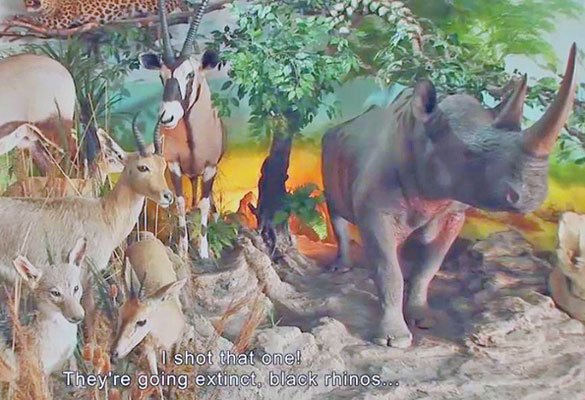Indonesian internet forums trading in exotic fauna are rife with complaints from people who feel scammed because the creatures they ordered have not matched descriptions. Especially when animals listed as “healthy” and “vaccinated” are dead on arrival.
People who get conned when buying wild animals deserve no sympathy. Neither do vendors who put animals in unventilated packages and entrust them to couriers.
On the reptilx.com website, a man using the handle Junichiro ordered an Indian star tortoise from another member, DJ Tycoon, for Rp.2.55 million. Two days after transferring the money, Junichiro received a package containing a dead, rotting tortoise. He said the parcel was undamaged so the tortoise must have been dead before it was put in the box. Other members concurred that this sort of tortoise could survive for five days in a delivery package.
Under Indonesia’s Information and Electronic Transactions Law of 2008, anyone who knowingly disseminates false information resulting in consumer losses in electronic transactions can receive a maximum penalty of six years in jail and a fine of Rp.1 billion. DJ Tycoon merely had his reptilx.com account terminated.
On another website, a cat fancier paid Rp.3.5 million for a ‘Persian peak-nose extreme’, which looked healthy in photos but was scrawny on delivery and soon died, despite an expensive visit to a vet. The buyer believes the vendor only advertised the cat for sale because she knew it was dying. This sort of problem is easily avoided by not being a snob about pedigree cats and instead adopting a homeless puppy. Or even a kampung kitten.
There are similar complaints of packaged birds and snakes arriving dead. Some fraudsters hijack the name of a reputable animal trader, post photos of animals they don’t have, collect orders and then fail to deliver. Others dye animals to make them look more exotic.
Trafficking in endangered species is thriving via the Internet. Animals for sale on the popular Kaskus site include the slow loris, leopard cat, sulphur-crested cockatoo, scaly anteater, Javan surili monkey, Müller’s Bornean gibbon, the bearcat and protected parrots. There are also adverts for stuffed tigers and actual tiger cubs. Prices for tiger cubs range from Rp.150 million to Rp.600 million. Former president Suharto’s eldest daughter, Tutut, was known to keep a pet tiger. Trading in these animals, dead or alive, is illegal. In the director’s cut of The Act of Killing documentary film, there’s a scene where Pemuda Pancasila leader Yapto Soerjosoemarno jokes about shooting an endangered black rhinoceros.
Conservation group ProFauna is urging Kaskus to block advertisements for protected species. Last year tokobagus.com pledged to stop advertising endangered animals.
Some religious healers claim they can cure sick people by transferring the illness to an animal, usually a goat. A woman in Lampung province consulted a holy man who insisted that a malevolent genie had possessed her body and for a fee of Rp.6 million he could transfer the evil spirit into the body of a goat. A disturbing video of such chicanery can be viewed on YouTube. The perpetrator of this sham, Nur Illahi Muhammad, has not been arrested for fraud or animal cruelty.
People who can’t afford goats can use rabbits. Yunita, from the Central Java town of Pekalongan, felt ill during her fourth month of pregnancy. A doctor declared she had cervical cancer and recommended surgery. Instead, she visited an alternative healer, who pretended to transfer the cancer to a rabbit. Modernist preachers condemn such primitive quackery, because illness is instead cured by praying to God.
The annual Islamic holiday of Idul Adha (the feast of the sacrifice) offers opportunities for scamming in the livestock trade, as devout Muslims are encouraged to buy sacrificial goats, sheep or cows to prove their piety. The simplest scam involves overstating the weight of a beast, as the vendors almost never have scales. And there are unscrupulous agents ripping off people who pool their money to purchase a cow. For example, residents of a street may raise Rp.7.5 million and give the money to an agent, who will then buy them a Rp.5 million cow. Indonesians performing the haj pilgrimage to Mecca have been warned to beware of agents offering bargain-priced sacrificial animals.
Some uncharitable people criticize the World Wide Fund for Nature simply because it has failed to stop the decline in Sumatran tiger numbers, while its Chief Executive Officer, Carter Roberts, in 2012 collected a salary of $561,194 and benefits of $77,347.




